|
Kick Assiest Blog
Friday, 8 June 2007
Taliban dead
Mood:
 party time!
Topic: News party time!
Topic: News
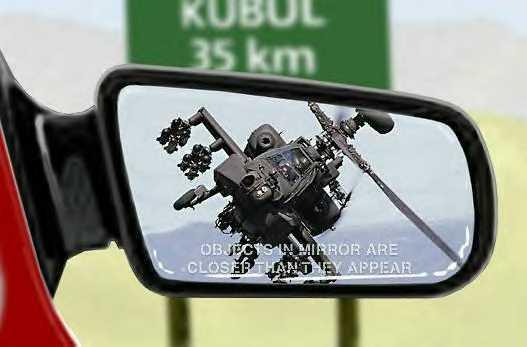
 30 Taliban suspects dead, wounded 30 Taliban suspects dead, wounded
  KABUL, Afghanistan -- Thirty suspected Taliban members were dead or wounded after fighting and airstrikes in southern Afghanistan, the Ministry of Defense said Thursday. KABUL, Afghanistan -- Thirty suspected Taliban members were dead or wounded after fighting and airstrikes in southern Afghanistan, the Ministry of Defense said Thursday.
The battle took place Wednesday in the Garmser district of Helmand province, the world's largest poppy-growing region and site of fierce battles in recent months.  Gen. Mohammad Zahir Azimi, spokesman for the Defense Ministry, said officials could not say how many of the 30 reported casualties were killed or how many wounded. He said multiple sources were used to come up with the figure. Gen. Mohammad Zahir Azimi, spokesman for the Defense Ministry, said officials could not say how many of the 30 reported casualties were killed or how many wounded. He said multiple sources were used to come up with the figure.
Elsewhere, suspected militants attacked a government compound in the southern province of Zabul's Daychopan district Thursday, killing a policeman and wounding three others, said a district police chief, Hakim Khan.   The suspected militants traded heavy machine-gun fire with police and Afghan soldiers for more than two hours, Khan said. The suspected militants traded heavy machine-gun fire with police and Afghan soldiers for more than two hours, Khan said.
One policeman was killed, while two soldiers and a policeman were wounded in the clash before the Taliban withdrew, he said. An Afghan soldier was also killed in a mine explosion in Zabul province, a Defense Ministry statement said.  Meanwhile, in eastern Afghanistan, U.S.-led coalition and Afghan troops killed "an enemy militant" during a firefight in Nangarhar province's Khogyani district, a coalition statement said. Meanwhile, in eastern Afghanistan, U.S.-led coalition and Afghan troops killed "an enemy militant" during a firefight in Nangarhar province's Khogyani district, a coalition statement said.
The troops had been approaching a suspected al-Qaida safehouse when they were fired upon, the statement said.  "Coalition and Afghan forces returned fire, killing the armed militant and quickly securing the scene," it said. "Coalition and Afghan forces returned fire, killing the armed militant and quickly securing the scene," it said.
  The statement said three men were detained, and that troops discovered weapons, timers and grenades -- often used to make improvised explosive devices. The statement said three men were detained, and that troops discovered weapons, timers and grenades -- often used to make improvised explosive devices.
 In Zabul province, coalition and Afghan forces detained three militants early Thursday at another "suspected safehouse for al-Qaida foreign fighters," the coalition said in a statement. Weapons were found on site, and no shots were fired in the operation, it said. In Zabul province, coalition and Afghan forces detained three militants early Thursday at another "suspected safehouse for al-Qaida foreign fighters," the coalition said in a statement. Weapons were found on site, and no shots were fired in the operation, it said.
CNN.com ~ AP ** 30 Taliban suspects dead, wounded
Posted by yaahoo_
at 1:19 AM EDT
Updated: Friday, 8 June 2007 1:31 AM EDT
Thursday, 7 June 2007
Iraqis
Mood:
 chatty
Topic: News chatty
Topic: News
Iraqi People Taking Stand Against Al Qaeda  WASHINGTON -- The Iraqi people are taking a stand against al Qaeda beyond Anbar province, Multinational Force Iraq's new spokesman said today. WASHINGTON -- The Iraqi people are taking a stand against al Qaeda beyond Anbar province, Multinational Force Iraq's new spokesman said today.
Army Brig. Gen. Kevin J. Bergner, who spoke during a phone interview today, called the Iraqis' stance against the terror group the "Anbar Awakening." In the past six months, local tribal leaders and sheikhs in the Sunni province have disavowed the terror group's tactics and have turned to the Iraqi government. Violence in the province has plummeted, and local men are flocking to police and army recruiting stations. Now Iraqis outside Anbar are experiencing their own awakening, Bergner said. In Almariyah, a mixed neighborhood in Baghdad, local Iraqis are turning against al Qaeda following a series of horrendous attacks against local sheikhs and civilians there. "The locals standing up against al Qaeda and separating themselves from them," he said. 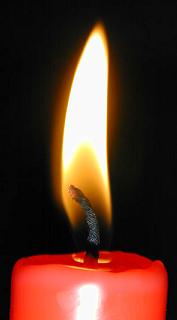 Bergner said Iraqi government and coalition officials are encouraged by the trend. Bergner said Iraqi government and coalition officials are encouraged by the trend.
However, the general warned against jumping to conclusions or making premature assessments of the Baghdad security plan. "We're still positioning the forces committed to Baghdad," he said. Four of the five additional U.S. brigades planned for in the "surge" are in Baghdad with the fifth arriving. "In the next couple of weeks, we will see all five start their operations," Bergner said. Even with this, there will still be a delay as units assume their battle positions. "When there is a transition, even when the force is fully operational, there is a period of time ... as they master their environment and as they learn to work with the Iraqi security forces and local people and they really start to operate against the threat in their new sectors," he said. The general highlighted the role of the newly established joint security stations and combat outposts around Baghdad. "Where the Iraqi coalition forces are integrated in those stations, it's really a powerful result," he said. Bergner, who served in Mosul in 2005, spoke about a recent visit to Ramadi. He said coalition officials using reconnaissance assets were able to contact Iraqi policemen to investigate the situation. The general was amazed at the capability. The Iraqi police could not have done this when he was last in Iraq, he said. "It's a great improvement in our capability and in the way we interact with the Iraqis," he said. 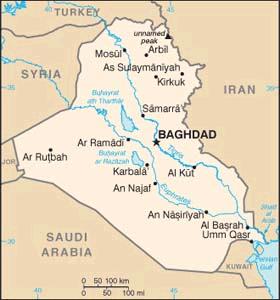 Bergner said that the trajectory of the country has already changed. From January to today, the amount of sectarian violence has dropped. It has not been a straight drop, and in May it rose over April. "That is the nature of progress here in Iraq. It is non-linear. It's definitely uneven, so you're going to see those interruptions, corrections," he said. Bergner said that the trajectory of the country has already changed. From January to today, the amount of sectarian violence has dropped. It has not been a straight drop, and in May it rose over April. "That is the nature of progress here in Iraq. It is non-linear. It's definitely uneven, so you're going to see those interruptions, corrections," he said.
The final parts of the surge are moving in to position. "We really don't want to let expectations and assessments get out in front of the force that's still flowing," he said. "The fifth brigade is significant increase in our capability. It's going to create new opportunities for us, and so where we've been up til now is less interesting than where we're going to go." The bottom line for servicemembers is that the battle for Baghdad is going to be a tough fight, Bergner said. "We've seen the courage of the Iraqi people as they stand up to al Qaeda," he said. "The coalition forces have more troops going to more places, making more contacts, and we are contesting places we haven't been for some time. "It's going to get harder before it gets easier." Subscription e-mail from the U.S. Department of Defense news service
Subscription required:
American Forces Press Service ~ Jim Garamone ** Iraqi People Taking Stand Against Al Qaeda
Posted by yaahoo_
at 12:01 AM EDT
Wednesday, 6 June 2007
Troops capture insurgents
Mood:
 celebratory
Topic: News celebratory
Topic: News
Troops disrupt operations, capture insurgents
BAGHDAD -- Coalition forces detained a number of suspects and uncovered an enemy mortar system in Iraq during operations that ended Tuesday. A local citizen tipped Multi-National Division-Baghdad Soldiers to uncover a 60mm mortar system in Sadr City Sunday. The local approached paratroopers from 82nd Airborne Division’s 325th Airborne Infantry regiment and told them the location of a mortar system he discovered in the back of a truck. “We suspect this mortar system was used in attacks on Coalition outposts, based on the location and point of origin site in which it was found,” said U.S. Army Lt. Col. David Oclander, the executive officer for the unit’s 2nd Brigade Combat Team. “Risking his own personal security, this man took action to get weapons used by criminal militias off the streets,” Oclander said. “(This is) a great example of how Iraqi citizens are working to take action in securing their neighborhoods.”  Coalition forces conducted several other operations across Iraq. Coalition forces conducted several other operations across Iraq.
In raids targeting al-Qaeda Tuesday morning, Coalition forces detained 18 suspected terrorists by using intelligence based off information gained from previous successful operations. Coalition forces also raided four buildings associated with al-Qaeda northwest of Fallujah, rounding up an additional 13 suspected terrorists. Military officials said the suspects have ties to a cell, which carries out car-bomb, sniper and mortar attacks against Coalition forces and Iraqi civilians. In Mosul Tuesday, Coalition forces raided two buildings and detained two suspected terrorists, including an assistant to a senior terrorist leader who was captured May 29. Coalition forces also captured suspected key al-Qaeda leaders in Rustafa, Taji and Termiyah, Tuesday morning. “Our continuing operations are frustrating al-Qaeda in Iraq’s ability to operate,” said U.S. Army Lt. Col. Christopher Garver, a Multi-National Force-Iraq spokesman. “We are targeting them, detaining them, and in turn [they] are giving us information to disrupt the networks further.”  Coalition forces nabbed four suspected terrorists, including one suspected terror cell leader during raids in northeast Baghdad. Coalition forces nabbed four suspected terrorists, including one suspected terror cell leader during raids in northeast Baghdad.
Military officials said the suspects are members of a secret terror cell responsible for moving explosively formed penetrators and other weapons to Iraq. The cell is believed to bring militants from Iraq to Iran for terrorist training. “Coalition forces continue to break apart the terrorist networks that attempt to bring instability to Iraq and inflict continued violence on the Iraqi people,” Garver said. The work of Iraqi citizens and Coalition troops has led to multiple arrests and the seizing of several weapons caches, disrupting operations and creating a safer environment for the people of Iraq. (Compiled from Multi-National Force-Iraq and Multi-National Corps-Iraq news releases) In other developments throughout Iraq:
• Coalition forces detained 18 suspected terrorists in raids targeting the al-Qaeda in Iraq network Tuesday morning based on information gained from previous successful operations. • Coalition and Iraqi forces captured a wanted insurgent during combat operations near the Karkh Oil Facility, northeast of Lutifiyah, Iraq June 1. Multi-National Force - Iraq ** Troops disrupt operations, capture insurgents
Posted by yaahoo_
at 7:02 PM EDT
Updated: Wednesday, 6 June 2007 7:05 PM EDT
Drink
Mood:
 energetic
Topic: Funny Stuff energetic
Topic: Funny Stuff
 Definitely not a 'soft' drink... Definitely not a 'soft' drink...
Man Sues Health Drink Maker Over Erection  NEW YORK -- A man has sued the maker of the health drink Boost Plus, claiming the vitamin-enriched beverage gave him an erection that would not subside and caused him to be hospitalized. NEW YORK -- A man has sued the maker of the health drink Boost Plus, claiming the vitamin-enriched beverage gave him an erection that would not subside and caused him to be hospitalized.
The lawsuit filed by Christopher Woods of New York said he bought the nutrition beverage made by the pharmaceutical company Novartis AG at a drugstore on June 5, 2004, and drank it.  Woods' court papers say he woke up the next morning "with an erection that would not subside" and sought treatment that day for the condition, called severe priapism. Woods' court papers say he woke up the next morning "with an erection that would not subside" and sought treatment that day for the condition, called severe priapism.
They say Woods, 29, underwent surgery for implantation of a Winter shunt, which moves blood from one area to another.  The lawsuit, filed late Monday, says Woods later had problems that required a hospital visit and penile artery embolization, a way of closing blood vessels. Closing off some blood flow prevents engorgement and lessens the likelihood of an erection. The lawsuit, filed late Monday, says Woods later had problems that required a hospital visit and penile artery embolization, a way of closing blood vessels. Closing off some blood flow prevents engorgement and lessens the likelihood of an erection.
Woods' lawsuit, which seeks unspecified damages, names Novartis Consumer Health Inc. as a defendant. A spokeswoman for the company, Brandi Robinson, said Tuesday the company was aware of the lawsuit but does not comment on pending litigation.  Woods' lawyer did not return telephone calls for comment Tuesday. Woods' lawyer did not return telephone calls for comment Tuesday.
Novartis' Boost Plus Web site describes the drink as "a great tasting, high calorie, nutritionally complete oral supplement for people who require extra energy and protein in a limited volume," in vanilla, chocolate and strawberry. Fox News.com ~ Associated Press ** Man Sues Health Drink Maker Over Erection  I doubt that it'll stand up in court. If it does, it'll be a long, hard day in court. It's gonna be a really hard sell, hopefully Novartis doesn't get shafted. (somebody had to say it.) I doubt that it'll stand up in court. If it does, it'll be a long, hard day in court. It's gonna be a really hard sell, hopefully Novartis doesn't get shafted. (somebody had to say it.)
Posted by yaahoo_
at 2:36 PM EDT
Updated: Wednesday, 6 June 2007 3:16 PM EDT
Powder
Mood:
 special
Topic: Odd Stuff special
Topic: Odd Stuff
All You Need is Water: Dutch Students Make Alcohol Powder  AMSTERDAM -- Dutch students have developed powdered alcohol which they say can be sold legally to minors. AMSTERDAM -- Dutch students have developed powdered alcohol which they say can be sold legally to minors.
The latest innovation in inebriation, called Booz2Go, is available in 20-gram packets that cost 1-1.5 euros ($1.35-$2). Top it up with water and you have a bubbly, lime-colored and -flavored drink with just 3 percent alcohol content. "We are aiming for the youth market. They are really more into it because you can compare it with Bacardi-mixed drinks," 20-year-old Harm van Elderen told Reuters. Van Elderen and four classmates at Helicon Vocational Institute, about an hour's drive from Amsterdam, came up with the idea as part of their final-year project. "Because the alcohol is not in liquid form, we can sell it to people below 16," said project member Martyn van Nierop. The legal age for drinking alcohol and smoking is 16 in the Netherlands. In Germany, alcopops -- sweet drinks containing alcohol and in powder form -- caused quite a stir when launched on to the market. Alcohol powder, classified as a flavouring, was sold in the United States three years ago.  The students said companies interested in making the product commercially could avoid taxes because the alcohol was in powder form. A number of companies are interested, they said. The students said companies interested in making the product commercially could avoid taxes because the alcohol was in powder form. A number of companies are interested, they said.
Fox News.com ~ Reuters ** All You Need is Water: Dutch Students Make Alcohol Powder
Posted by yaahoo_
at 2:07 PM EDT
Updated: Wednesday, 6 June 2007 2:47 PM EDT
Tuesday, 5 June 2007
Murder
Mood:
 don't ask
Topic: Yahoo Chat Stuff don't ask
Topic: Yahoo Chat Stuff
Murder in US vs. Murder in Iraq  The federal government has released new murder statistics. You have to run estimates here to get the numbers because the story does not list the numbers. They just list the percentage increase in recent years. Anyway, the bottom line is that the estimates for the murders in America today are 16,185 every year, and rapes, 92,837. Doesn't that sort of put in perspective, ladies and gentlemen, what's happening in Iraq and the way news is reported concerning both? The federal government has released new murder statistics. You have to run estimates here to get the numbers because the story does not list the numbers. They just list the percentage increase in recent years. Anyway, the bottom line is that the estimates for the murders in America today are 16,185 every year, and rapes, 92,837. Doesn't that sort of put in perspective, ladies and gentlemen, what's happening in Iraq and the way news is reported concerning both?
Yahoo News ~ Reuters - James Vicini ** Violent crime up again, more murders, robberies
Posted by yaahoo_
at 2:44 AM EDT
Monday, 4 June 2007
Dem Corruption
Mood:
 d'oh
Now Playing: LIBTARD ''CULTURE OF CORRUPTION'' ALERT
Topic: Lib Loser Stories d'oh
Now Playing: LIBTARD ''CULTURE OF CORRUPTION'' ALERT
Topic: Lib Loser Stories
Louisiana Congressman indicted on corruption charges... Jury Indicts Jefferson (D) in Bribery Probe, corruption charges  WASHINGTON -- Rep. William Jefferson, D-La., was indicted Monday on federal charges of racketeering, soliciting bribes and money-laundering in a long- running bribery investigation into business deals he tried to broker in Africa. WASHINGTON -- Rep. William Jefferson, D-La., was indicted Monday on federal charges of racketeering, soliciting bribes and money-laundering in a long- running bribery investigation into business deals he tried to broker in Africa.
The indictment handed up in federal court in Alexandria., Va., Monday is 94 pages long and lists 16 alleged violations of federal law that could keep Jefferson in prison for up to 235 years. He is charged with racketeering, soliciting bribes, wire fraud, money-laundering, obstruction of justice, conspiracy and violations of the Foreign Corrupt Practices Act. Jefferson is accused of soliciting bribes for himself and his family, and also for bribing a Nigerian official.  Almost two years ago, in August 2005, investigators raided Jefferson's home in Louisiana and found $90,000 in cash stuffed into a box in his freezer. Almost two years ago, in August 2005, investigators raided Jefferson's home in Louisiana and found $90,000 in cash stuffed into a box in his freezer.
Jefferson, 63, whose Louisiana district includes New Orleans, has said little about the case publicly but has maintained his innocence. He was re-elected last year despite the looming investigation. Jefferson, in Louisiana on Monday, could not immediately be reached for comment. Two of Jefferson's associates have already struck plea bargains with prosecutors and have been sentenced.  Brett Pfeffer, a former congressional aide, admitted soliciting bribes on Jefferson's behalf and was sentenced to eight years in prison. Brett Pfeffer, a former congressional aide, admitted soliciting bribes on Jefferson's behalf and was sentenced to eight years in prison.
Another Jefferson associate, Louisville, Ky., telecommunications executive Vernon Jackson, pleaded guilty to paying between $400,000 and $1 million in bribes to Jefferson in exchange for his assistance securing business deals in Nigeria and other African nations. Jackson was sentenced to more than seven years in prison. Both Pfeffer and Jackson agreed to cooperate in the case against Jefferson in exchanges for their pleas. The impact of the case has stretched across continents and even roiled presidential politics in Nigeria. According to court records, Jefferson told associates that he needed cash to pay bribes to the country's vice president, Atiku Abubakar. Abubakar denied the allegations, which figured prominently in that country's presidential elections in April. Abubakar ran for the presidency and finished third. The indictment does not name Abubakar. But it describes Jefferson's dealings with an unnamed "Nigerian Official A" who was a high-ranking official in Nigeria's executive branch who had a spouse in Potomac, Md. One of Abubakar's wives lived in that Washington suburb.  Court records indicate that Jefferson was videotape taking a $100,000 cash bribe from an FBI informant. Most of that money later turned up in a freezer in Jefferson's home. Court records indicate that Jefferson was videotape taking a $100,000 cash bribe from an FBI informant. Most of that money later turned up in a freezer in Jefferson's home.
In May 2006, the FBI raided Jefferson's congressional office, the first such raid on a sitting congressman's Capitol office. That move sparked a constitutional debate over whether the executive branch stepped over its boundary. The legality of the raid is still being argued on appeal. House leaders objected to the search saying it was an unconstitutional intrusion on the lawmaking process. The FBI said the raid was necessary because Jefferson and his legal team had failed to respond to requests for documents. Some but not all the documents seized in the raid have been turned over Justice Department prosecutors. Associated Press writer Cain Burdeau in New Orleans contributed to this report.
Breitbart.com ~ Associated Press - Lara Jakes Jordan ** Jury Indicts Jefferson in Bribery Probe
Also at: Fox News  Most ethical congress... ever!!! As I expect that Nancy Puglosi will ask Rep. Jefferson to resign. [sarcasm off] Most ethical congress... ever!!! As I expect that Nancy Puglosi will ask Rep. Jefferson to resign. [sarcasm off]
LOL, Right-wing conspiracy? Racism? A mistake? It can't be corruption, it just can't be! Three things will happen: 1. All the MSM will start referring to him as "Louisiana Rep. William Jefferson," instead of "Congressman William Jefferson (D-LA), just like they did with Gary Condit years back, to take heat off the demented-cRATS and try to make it appear as if he's a Republican. 2. Pelosi, Reid, et. al., will start harping about "innocent until proven guilty,' and get Jesse Jackson and Al Sharpton to start up the race baiting. They will not force, or even ask, Jefferson to resign -- to the contrary, they will state how he is standing up for the Constitution and the Rule of Law by not giving in to those racist crackers in the DOJ. 3. This story will disappear from the MSM by Friday of this week.
Posted by yaahoo_
at 12:01 AM EDT
Sunday, 3 June 2007
Dem Pork
Mood:
 loud
Now Playing: LIBTARD ''CULTURE OF CORRUPTION'' ALERT
Topic: Lib Loser Stories loud
Now Playing: LIBTARD ''CULTURE OF CORRUPTION'' ALERT
Topic: Lib Loser Stories
Democrats hide pet projects from voters... House keeps pet projects from scrutiny  AP Photo: Democratic presidential hopeful U.S. Sen. Chris Dodd, D-Conn., walks through a hallway after speaking at the Iowa Democratic Party's annual Hall of Fame Dinner, Saturday, June 2, 2007, in Cedar Rapids, Iowa. >>>>> WASHINGTON -- After promising unprecedented openness regarding Congress' pork barrel practices, House Democrats are moving in the opposite direction as they draw up spending bills for the upcoming budget year. 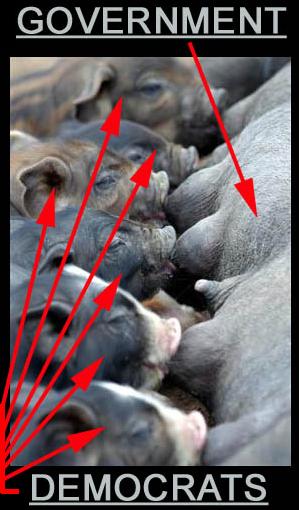 Democrats are sidestepping rules approved their first day in power in January to clearly identify "earmarks" — lawmakers' requests for specific projects and contracts for their states — in documents that accompany spending bills. Democrats are sidestepping rules approved their first day in power in January to clearly identify "earmarks" — lawmakers' requests for specific projects and contracts for their states — in documents that accompany spending bills.
Rather than including specific pet projects, grants and contracts in legislation as it is being written, Democrats are following an order by the House Appropriations Committee chairman to keep the bills free of such earmarks until it is too late for critics to effectively challenge them. Rep. David Obey (news, bio, voting record), D-Wis., says those requests for dams, community grants and research contracts for favored universities or hospitals will be added spending measures in the fall. That is when House and Senate negotiators assemble final bills to send to President Bush. Such requests total billions of dollars. As a result, most lawmakers will not get a chance to oppose specific projects as wasteful or questionable when the spending bills for various agencies get their first votes in the full House in June. The House-Senate compromise bills due for final action in September cannot be amended and are subject to only one hour of debate, precluding challenges to individual projects.  Obey insists he is reluctantly taking the step because Appropriations Committee members and staff have not had enough time to fully review the 36,000 earmark requests that have flooded the committee. Obey insists he is reluctantly taking the step because Appropriations Committee members and staff have not had enough time to fully review the 36,000 earmark requests that have flooded the committee.
The committee has been absorbed with writing a catchall spending bill cleaning up unfinished budget business from last year and the just-completed Iraq war spending bill. "It's going to take weeks to get that screening done and I'm the person that has to sign off," Obey told his colleagues at a committee meeting just before Memorial Day. "As long as I'm in charge, I'm going to make doggone sure that we do everything possible to screen every project." Obey also says many lawmakers requested additional time to get their official requests for back-home projects submitted for review. Budget watchdog groups who "scrub" appropriations bills for questionable provisions are outraged. "Who appointed him judge and jury of earmarks?" Tom Schatz, president of the Citizens Against Government Waste. "What that does is leave out the public's input."  What Obey is doing runs counter to new rules that Democrats promised would make such spending decisions more open. Those rules made it clear that projects earmarked for federal dollars and their sponsors were to be made available to public scrutiny when appropriations bills are debated. What Obey is doing runs counter to new rules that Democrats promised would make such spending decisions more open. Those rules made it clear that projects earmarked for federal dollars and their sponsors were to be made available to public scrutiny when appropriations bills are debated.
The rules also require lawmakers requesting such projects to provide a written explanation describing their requests and a letter certifying that they or their spouse would not make any financial gain from them. The greater transparency was supposed to lead to more self-discipline on the part of lawmakers. While the great majority of home-state projects are easy to defend, there are often clunkers. For example, the "bridge to nowhere," a $223 million span in Alaska to link Ketchikan and Gravina Island, which has a population of about 50. Ultimately, after the bridge was widely mocked in news account, Congress decided to dump it.  Obey has promised to cut congressional earmarks — which the White House says totaled almost $19 billion in 2005 — in half. Obey has promised to cut congressional earmarks — which the White House says totaled almost $19 billion in 2005 — in half.
Democrats, he says, will follow the new rules when earmarks are added to the bills, which in most cases will not be until House-Senate talks in September. Republicans say Democrats are skirting the new disclosure rules. Rep. Jerry Lewis (news, bio, voting record) of California, the Appropriations Committee's former chairman and now its top Republican, said Obey's move represents "a complete lack of transparency." Conservatives say they will employ guerrilla tactics during debates in the full House to push their point.  "This is not more sunlight. This is actually keeping earmarks secret until it's too late to do anything about it," griped Rep. Jeff Flake (news, bio, voting record), R-Ariz. "It will be impossible for anybody to challenge any of what will be thousands and thousands and thousands of earmarks." "This is not more sunlight. This is actually keeping earmarks secret until it's too late to do anything about it," griped Rep. Jeff Flake (news, bio, voting record), R-Ariz. "It will be impossible for anybody to challenge any of what will be thousands and thousands and thousands of earmarks."
Some Senate Republicans, meanwhile, are threatening to block appropriations bills from going to House-Senate conference talks if that is when lawmakers' projects are going to be added. Democrats in the Senate — including Sen. Robert C. Byrd, D-W.Va., who heads the Senate Appropriations Committee — also are unhappy about Obey's move. Many do not like the prospect of waiting until September or October to learn which hometown projects they will get Yahoo News ~ Associated Press - Andrew Taylor ** House keeps pet projects from scrutiny You can always trust the Demented-crats. To raise taxes to pay for their hidden agendas and pay for all the perks and "entitlements" while not supporting the military.
Posted by yaahoo_
at 12:01 AM EDT
Saturday, 2 June 2007
Sunni revolt
Mood:
 energetic
Topic: News energetic
Topic: News
More bad news for the lame-stream media, Demented-crats and libtards... Sunni revolt against al-Qaida spreads 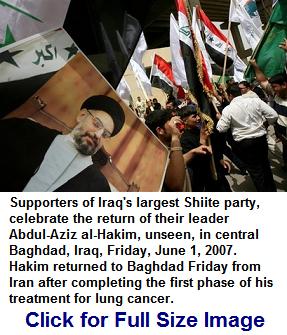 AP Photo >>> AP Photo >>>
BAGHDAD -- An al-Qaida-linked suicide bomber struck a safehouse occupied by an insurgent group that has turned against the terror network. Friday's attack northeast of Baghdad killed two other militants, police said, the latest sign that an internal Sunni power struggle is spreading. The U.S. military also announced the deaths of five more servicemen. At least 126 American troops were killed in Iraq in May, the third-deadliest month for U.S. forces since the war began more than four years ago. May was also the third-deadliest for Iraqis since The Associated Press began tracking civilian casualties in April 2005. At least 2,155 Iraqis were killed last month, according to the AP count. The Iraqi government put the number at 2,123, according to officials at the Interior Ministry, who spoke on condition of anonymity because they were not authorized to release the information.  The explosion in Baqouba came as Iraqi and U.S. troops fanned out in the Sunni stronghold of Amariyah in the capital, enforcing an indefinite curfew after heavily armed residents clashed with al-Qaida in Iraq fighters, apparently fed up with the group's brutal tactics. The explosion in Baqouba came as Iraqi and U.S. troops fanned out in the Sunni stronghold of Amariyah in the capital, enforcing an indefinite curfew after heavily armed residents clashed with al-Qaida in Iraq fighters, apparently fed up with the group's brutal tactics.
"Al-Qaida fighters and leaders have completely destroyed Amariyah," said Abu Ahmed, a 40-year-old Sunni father of four who said he joined in the clashes. "No one can venture out, and all the businesses are closed. They kill everyone who criticizes them and is against their acts even if they are Sunnis." Other residents, who spoke on condition of anonymity because they feared retribution, said the clashes began after al-Qaida militants abducted and tortured Sunnis from the area. That prompted a large number of residents, including many members of the rival Islamic Army armed with guns and rocket-propelled grenades, to rise up against the terror network. U.S. forces joined them in the fighting Wednesday and Thursday. 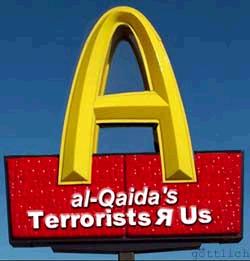 Ahmed denied being a member of any insurgent group but said he sympathizes with "honest Iraqi resistance," referring to those opposed both to U.S.-led efforts in Iraq and to the brutal tactics of al-Qaida. Ahmed denied being a member of any insurgent group but said he sympathizes with "honest Iraqi resistance," referring to those opposed both to U.S.-led efforts in Iraq and to the brutal tactics of al-Qaida.
With the insurgency appearing increasingly fragmented, Iraqi officials congratulated Amariyah residents for confronting al-Qaida. "Government security forces are now in control of the Amariyah district," Iraqi military spokesman Qassim al-Moussawi was quoted as saying by Iraqi state TV. He also lauded "the cooperation of local residents with the government." U.S. and Iraqi officials have claimed recent success in the effort to isolate al-Qaida, particularly in the western Anbar province, where many Sunni tribes have banded together to fight the terror network. A growing number of Sunni tribes have reportedly been turning against al-Qaida elsewhere as well, repelled by the terror network's sheer brutality and austere religious extremism. 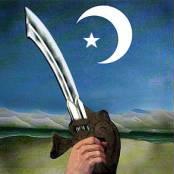 The extremists also are competing with nationalist groups for influence and control over diminishing territory in the face of U.S. assaults, a situation exacerbated by the influx of Sunni fighters to areas outside the capital as they flee a nearly four-month-old security crackdown. The extremists also are competing with nationalist groups for influence and control over diminishing territory in the face of U.S. assaults, a situation exacerbated by the influx of Sunni fighters to areas outside the capital as they flee a nearly four-month-old security crackdown.
But the clashes in Amariyah appeared to be the fiercest fighting between Sunni groups in the capital. "I think this is happening because of al-Qaida's brutality," said Ehsan Ahrari, professor and specialist in counterterrorism at the Asia-Pacific Center for Security Studies. "They have been hurting the Sunni population in Iraq and that is coming back to hurt al-Qaida." "The event itself is significant because it looks like the U.S. is making some breakthrough in terms of establishing consensus with the Sunni population," he said. "Of course we have to hold our breath and see, but this is important no doubt."  Official casualty figures from the fighting in Amariyah were not available. But a local council member, who declined to be identified because of security concerns, said at least 31 people, including six al-Qaida militants, were killed and 45 other fighters were detained in the clashes. The council member also said an indefinite curfew was imposed starting at 6 a.m. on Friday, confining people to their houses. Official casualty figures from the fighting in Amariyah were not available. But a local council member, who declined to be identified because of security concerns, said at least 31 people, including six al-Qaida militants, were killed and 45 other fighters were detained in the clashes. The council member also said an indefinite curfew was imposed starting at 6 a.m. on Friday, confining people to their houses.
The explosion in Baqouba, 35 miles northeast of Baghdad, came as residents said al-Qaida was trying to regain control of the central Tahrir neighborhood from the 1920 Revolution Brigades, a group composed of officials and soldiers from the ousted regime who have allied themselves with local security forces against the terror network. Local police said at least two members of the rival insurgent group were killed. The bomber was affiliated with al-Qaida in Iraq, according to police who would not be named because they feared they would be targeted.  Separately, the U.S. military announced that coalition forces killed six militants and detained 18 others in operations targeting al-Qaida in Iraq on Thursday and Friday. Separately, the U.S. military announced that coalition forces killed six militants and detained 18 others in operations targeting al-Qaida in Iraq on Thursday and Friday.
Three children, ages 7, 9 and 11, were also killed Friday during a U.S. attack on suspected militants trying to plant roadside bombs in Anbar province, the military said. Nationwide, at least 32 Iraqis were killed or found dead on Friday, including 15 bullet-riddled bodies that turned up on the streets of Baghdad, apparent victims of so-called sectarian death squads usually run by Shiite militias. The deadliest months in the past two years were December 2006, when at least 2,309 were killed, and November 2006, when at least 2,250 were killed.  The number of bodies found — usually attributed to sectarian death squads — dipped slightly in February 2007, immediately after the Baghdad security crackdown began Feb. 14, but has been steadily increasing in recent weeks. Since April 1, at least 1,974 bodies have been found across Iraq. At least 1,186 of these were found inside Baghdad, and 788 outside the capital. The number of bodies found — usually attributed to sectarian death squads — dipped slightly in February 2007, immediately after the Baghdad security crackdown began Feb. 14, but has been steadily increasing in recent weeks. Since April 1, at least 1,974 bodies have been found across Iraq. At least 1,186 of these were found inside Baghdad, and 788 outside the capital.
Meanwhile, the U.S. military announced that three American soldiers were killed by small-arms fire in Baghdad over the past three days. Another soldier died Thursday at a hospital in Maryland, two weeks after he was seriously wounded by a sniper while searching for American troops captured by al-Qaida-linked militants south of Baghdad. 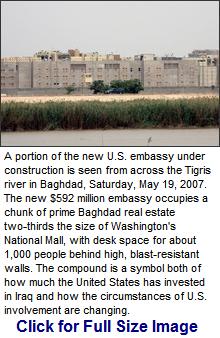 The military also announced the death of a soldier from wounds suffered in a roadside bombing in Baghdad on Wednesday. The military also announced the death of a soldier from wounds suffered in a roadside bombing in Baghdad on Wednesday.
Meanwhile, Abdul-Aziz al-Hakim, the leader of Iraq's largest Shiite party, returned to Baghdad from Iran after completing the first phase of his treatment for lung cancer, according to the Web site of the Supreme Islamic Council of Iraq. Separately, the State Department said the publication of computer-generated projections for the new U.S. Embassy under construction in Baghdad on an architecture firm's Web site would be a factor in future security considerations but would not affect the operation as a whole. "Obviously, the fact that some of this material has been out in the public domain is something our security folks will have to take into consideration as they move forward with construction and occupancy of the facility. But it hasn't in any fundamental way altered our plans," State Department spokesman Tom Casey said in Washington. AP writers Sinan Salaheddin and Bushra Juhi in Baghdad and AP's News Research Center in New York contributed to this report.
Yahoo News ~ Associated Press - Kim Gamel ** Sunni revolt against al-Qaida spreads
Related: This Blog *** Surge improves security, quality of life in Baghdad
Washington Post ~ Associated Press - Anne Gearan ** U.S. Embassy in Iraq to Be Biggest Ever
Posted by yaahoo_
at 3:39 PM EDT
Updated: Wednesday, 6 June 2007 6:36 PM EDT
Surge
Mood:
 bright
Topic: News bright
Topic: News
We better put the Demented-crats on suicide watch... Surge improves security, quality of life in Baghdad By Master Sgt. Dave Larsen
1st Cavalry Division Public Affairs CAMP LIBERTY -- The surge of Coalition and Iraqi Security Forces into Baghdad neighborhoods is aimed at improving the security situation in the Iraqi capital. Yet, there are other programs benefiting by having more boots on the ground during Operation Fardh Al-Qanoon. “The surge has assisted civil military operations by putting more coalition eyes on the environment, so that we get a more responsive analysis of what essential services and economic development services are needed by the populace,” said Lt. Col. John Rudolph, the assistant chief of staff of civil military operations for Multi-National Division – Baghdad. Rudolph said civil military operations in MND-B’s area of operation, which run the gamut from governance to agriculture to infrastructure to economic improvements, have already dedicated more than $163 million of Commander’s Emergency Relief Project (CERP) funds to projects all aimed at improving the quality of life for Iraqis living in and around Baghdad. “This really is about improving the quality of life for the Iraqis,” said Brig. Gen. Vincent K. Brooks, the deputy commanding general for support with MND-B. That “support” role not only touches the lives of the 50,000-plus troops working under MND-B, but also the Iraqi people. He said it’s challenging to move ahead with quality of life initiatives in the face of extremist efforts to stop them. “There is a perception that I’ve seen in every sector of this region we have responsibility for - when I talk to the Iraqis - that the Americans have the ability to put a man on the moon, and yet they can’t provide us with electricity,” Brooks said. “That whole idea of an expectation that we promised and haven’t delivered causes a great deal of problems.” Most westerners and Americans, for sure, cannot conceive flicking on a light switch on the wall and having it click with no effect. But, Baghdad has never had electricity flowing to its six million residents 24 hours a day. Electricity, or the lack thereof, was also tool used by the Ba’athist regime to reward or punish the population. “You saw areas favored by Saddam and his regime see power longer throughout the day, but they still didn’t get power 24/7,” Rudolph said. “They still had to use what they called the ‘generator men,’ who were entrepreneurs who had their own generators and supplied power to local neighborhoods for the ‘off power’ periods - even during Saddam’s period.” Rudolph said that providing power to Baghdad residents remains a priority, as witnessed by the 62 projects accounting for more than a quarter of the civil military operations funds dedicated this year – more than $44 million. The challenge to get the lights on throughout the Iraqi capital remains an ongoing issue. "It was an inefficient system to begin with and what we have done is by our electrification projects, in general, we’ve improved distribution so that the power that comes in is distributed more efficiently,” Rudolph said. “However, the level of available power goes down. It goes out to more places, but it doesn’t last as long.” Brooks said the provision of power to Baghdad neighborhoods remains a function of governance, and it will be the Iraqi government that will need to illuminate the Iraqi capital. “Our effort here has to be more than a physical one - to not only find ways to improve those systems physically, but also have to work back through that governance effort to ensure that people who are in positions of responsibility in government are not sectarian and are not biased in the delivery of essential services to all people,” Brooks noted.  Improved security in some areas of the city has allowed life to flourish for some Baghdad residents. Temporary barriers erected throughout the city have created what military officials call “safe markets” and “safe neighborhoods.” Rudolph said the market areas have benefited from the temporary barriers, keeping suicide car bombers at bay while allowing commerce to continue. Improved security in some areas of the city has allowed life to flourish for some Baghdad residents. Temporary barriers erected throughout the city have created what military officials call “safe markets” and “safe neighborhoods.” Rudolph said the market areas have benefited from the temporary barriers, keeping suicide car bombers at bay while allowing commerce to continue.
The marketplace in the Rusafa District in what is known as “Old Baghdad,” on the east side of the Tigris River, is one of those success stories. “Shoppers feel much safer going into the market now and they’ve actually seen an increase in the number of local citizens using that market,” Rudolph said. “It’s a perception, an attitude that the stigma of the random violence has lessened.” The Doura Market is often a stop for visiting dignitaries to Baghdad in the southern Rashid District. The 1st Cavalry Division’s 2nd “Black Jack” Brigade Combat Team from Fort Hood, Texas, conducted the initial assessment of the area and started the revitalization project there. Doura Market, Rudolph said, went from an unorganized street market of only a few dozen vendors to a thriving market place with more than 200 sellers now. He said the 4th Brigade Combat Team, 1st Infantry Division from Fort Riley, Kan., now operates in Rashid, and even more improvements are underway. 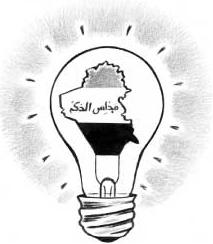 “4-1st Infantry is following up in their footsteps with a barrier plan just like Rusafa,” Rudolph said. “The shoppers (there) feel much safer in that environment. They’ve got solar-powered lights to provide security in the area. They have host nation security forces doing random patrols of the area, and because of these security measures more shops have opened up.” “4-1st Infantry is following up in their footsteps with a barrier plan just like Rusafa,” Rudolph said. “The shoppers (there) feel much safer in that environment. They’ve got solar-powered lights to provide security in the area. They have host nation security forces doing random patrols of the area, and because of these security measures more shops have opened up.”
Haifa Street, in the city’s center, west of the Tigris River, was once known as a hot-bed of extremist activity. It was a battleground for the 1st Cavalry Division when they operated in Baghdad in 2004-2005, and again earlier this year. The battleground is now a model neighborhood. “We’ve turned that around,” Brooks said. “Now, we have a thriving market area that is starting to grow and a revitalization process that will make the Iraqis really proud and recognize that things have improved.” All things start with security, Brooks said, but quality of life initiatives have been brought to life in areas of the Iraqi capital where the neighborhood and district advisory councils have worked in harmony for the good of their constituents.  “It’s where people in the neighborhood, people in the district recognize that they have needs and they’re the ones who should represent the people in that area,” Brooks said. “Mansour has a very active district council that is functioning very, very well, and our recent security operations have enhanced that, so they feel more and more secure. “It’s where people in the neighborhood, people in the district recognize that they have needs and they’re the ones who should represent the people in that area,” Brooks said. “Mansour has a very active district council that is functioning very, very well, and our recent security operations have enhanced that, so they feel more and more secure.
“They still remain periodically threatened, though,” Brooks said. “You have to recognize that people who are performing well, especially in harmony, are often targeted by extremists who don’t want to see good governance to ever form here.” CERP funds are a “band-aid,” Rudolph said. They are a way for coalition forces to provide immediate aid where needed. But MND-B, in conjunction with the State Department, is looking at long-term solutions to many of the issues facing the residents of the Iraqi capital.  “They use training programs for business practices and they also do micro-grants and micro-loans, but those are ‘payments in kind,’ Rudolph explained. “If a business needed, say, a cash register to be able to transact business activities, they wouldn’t get the money to buy it. They would get a cash register. It’s the items they would need, not the cash. As much as security has improved, we still don’t want cash-flow going into the hands of the wrong parties. That’s the best means of addressing it.” “They use training programs for business practices and they also do micro-grants and micro-loans, but those are ‘payments in kind,’ Rudolph explained. “If a business needed, say, a cash register to be able to transact business activities, they wouldn’t get the money to buy it. They would get a cash register. It’s the items they would need, not the cash. As much as security has improved, we still don’t want cash-flow going into the hands of the wrong parties. That’s the best means of addressing it.”
Brooks said MND-B has shifted its focus to long-term investments, versus short-term “band-aids” over the past three months.  “There’s been progress, but the approach that has been taken over the last several years for divisions like the 1st Cavalry Division was to find problems and fix them, and do it quickly,” Brooks said. “We’ve had success in that. But the reality is that it doesn’t leave an enduring systemic effect; so we’ve shifted our focus here over the last three months to look at the holistic system sewage on the west side of the river, for example, and identifying where the pump stations are, where the lift stations are, where the pipes that may be broken are, where there is standing sewage. Then, applying the resources, within the city of Baghdad and the government of Iraq, where they really matter.” “There’s been progress, but the approach that has been taken over the last several years for divisions like the 1st Cavalry Division was to find problems and fix them, and do it quickly,” Brooks said. “We’ve had success in that. But the reality is that it doesn’t leave an enduring systemic effect; so we’ve shifted our focus here over the last three months to look at the holistic system sewage on the west side of the river, for example, and identifying where the pump stations are, where the lift stations are, where the pipes that may be broken are, where there is standing sewage. Then, applying the resources, within the city of Baghdad and the government of Iraq, where they really matter.”
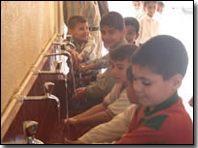 By looking at the broader picture, and engaging the local, district and provincial governments, Brooks said long-term progress is possible. By looking at the broader picture, and engaging the local, district and provincial governments, Brooks said long-term progress is possible.
“What’s changed, I think over that last few years, is how much the larger infrastructure has been revitalized,” Brooks said. “Water pipes have been replaced, electrical transformers have been installed, but it’s that last 100 meters worth of the service that really still has to become focused. Then people will really recognize a difference.” While on one hand, extremist elements are attempting to create chaos in the city streets and deter progress and quality of life initiatives, Brooks pointed in the other direction, to the American Soldier, and attributes much of the progress made to date in the Iraqi capital to the dedication of troops putting their boots on the ground to interact with residents and local officials.  “We wouldn’t have any of these successes; we’d have no progress if it weren’t for the contributions of our troops who are out there,” Brooks said. “We ask an awful lot of our Soldiers who are deployed over here. Certainly, we know we put them into harm’s way to accomplish whatever mission we set out to do. But their energy, their passion, their willingness to keep trying in the face of deliberate set backs at the hands of the enemy or at the hands of sometimes the Iraqis themselves - they’re out there every day and they keep moving forward. “We wouldn’t have any of these successes; we’d have no progress if it weren’t for the contributions of our troops who are out there,” Brooks said. “We ask an awful lot of our Soldiers who are deployed over here. Certainly, we know we put them into harm’s way to accomplish whatever mission we set out to do. But their energy, their passion, their willingness to keep trying in the face of deliberate set backs at the hands of the enemy or at the hands of sometimes the Iraqis themselves - they’re out there every day and they keep moving forward.
“In all these areas, not only security, but in governance, it may be that the first, best way for people to come together is because an American Soldier encouraged a district council member to sit in the same room with another,” Brooks added. “And governance begins, then, with the passion and the heart of the Soldier in this country.” Multi-National Force - Iraq ~ Master Sgt. Dave Larsen ** Surge improves security, quality of life in Baghdad
Related:
Multi-National Force - Iraq ~ Spc. Amanda Morrissey ** U.S. Soldiers, Iraqis open wells in Ninevah Multi-National Force - Iraq ~ Staff Sgt. Jacob Boyer ** Senior leaders gather to help rebuild Iraqi NCO Corps This Blog *** Sunni revolt against al-Qaida spreads
Press Releases:
Let's wait and see how long it takes for this headline to reach the front page of the NY Times or the Washington Post. I'll be watching the sky for pigs flying, and checking the Weather Channel for snow flurries in Hell. What does this guy know? He's actually there. We need libtards in New York and Washington to tell us this isn't working, as usual.
Posted by yaahoo_
at 2:12 PM EDT
Updated: Wednesday, 6 June 2007 6:38 PM EDT
Newer | Latest | Older
|

![]() 30 Taliban suspects dead, wounded
30 Taliban suspects dead, wounded![]()
 KABUL, Afghanistan -- Thirty suspected Taliban members were dead or wounded after fighting and airstrikes in southern Afghanistan, the Ministry of Defense said Thursday.
KABUL, Afghanistan -- Thirty suspected Taliban members were dead or wounded after fighting and airstrikes in southern Afghanistan, the Ministry of Defense said Thursday. Gen. Mohammad Zahir Azimi, spokesman for the Defense Ministry, said officials could not say how many of the 30 reported casualties were killed or how many wounded. He said multiple sources were used to come up with the figure.
Gen. Mohammad Zahir Azimi, spokesman for the Defense Ministry, said officials could not say how many of the 30 reported casualties were killed or how many wounded. He said multiple sources were used to come up with the figure.![]()
![]() The suspected militants traded heavy machine-gun fire with police and Afghan soldiers for more than two hours, Khan said.
The suspected militants traded heavy machine-gun fire with police and Afghan soldiers for more than two hours, Khan said. Meanwhile, in eastern Afghanistan, U.S.-led coalition and Afghan troops killed "an enemy militant" during a firefight in Nangarhar province's Khogyani district, a coalition statement said.
Meanwhile, in eastern Afghanistan, U.S.-led coalition and Afghan troops killed "an enemy militant" during a firefight in Nangarhar province's Khogyani district, a coalition statement said.![]() "Coalition and Afghan forces returned fire, killing the armed militant and quickly securing the scene," it said.
"Coalition and Afghan forces returned fire, killing the armed militant and quickly securing the scene," it said.![]()
![]() The statement said three men were detained, and that troops discovered weapons, timers and grenades -- often used to make improvised explosive devices.
The statement said three men were detained, and that troops discovered weapons, timers and grenades -- often used to make improvised explosive devices.![]() In Zabul province, coalition and Afghan forces detained three militants early Thursday at another "suspected safehouse for al-Qaida foreign fighters," the coalition said in a statement. Weapons were found on site, and no shots were fired in the operation, it said.
In Zabul province, coalition and Afghan forces detained three militants early Thursday at another "suspected safehouse for al-Qaida foreign fighters," the coalition said in a statement. Weapons were found on site, and no shots were fired in the operation, it said.![]()

 WASHINGTON -- The Iraqi people are taking a stand against al Qaeda beyond Anbar province, Multinational Force Iraq's new spokesman said today.
WASHINGTON -- The Iraqi people are taking a stand against al Qaeda beyond Anbar province, Multinational Force Iraq's new spokesman said today. Bergner said Iraqi government and coalition officials are encouraged by the trend.
Bergner said Iraqi government and coalition officials are encouraged by the trend. Bergner said that the trajectory of the country has already changed. From January to today, the amount of sectarian violence has dropped. It has not been a straight drop, and in May it rose over April. "That is the nature of progress here in Iraq. It is non-linear. It's definitely uneven, so you're going to see those interruptions, corrections," he said.
Bergner said that the trajectory of the country has already changed. From January to today, the amount of sectarian violence has dropped. It has not been a straight drop, and in May it rose over April. "That is the nature of progress here in Iraq. It is non-linear. It's definitely uneven, so you're going to see those interruptions, corrections," he said.
 Coalition forces conducted several other operations across Iraq.
Coalition forces conducted several other operations across Iraq. Coalition forces nabbed four suspected terrorists, including one suspected terror cell leader during raids in northeast Baghdad.
Coalition forces nabbed four suspected terrorists, including one suspected terror cell leader during raids in northeast Baghdad. NEW YORK -- A man has sued the maker of the health drink
NEW YORK -- A man has sued the maker of the health drink  Woods' court papers say he woke up the next morning "with an erection that would not subside" and sought treatment that day for the condition, called
Woods' court papers say he woke up the next morning "with an erection that would not subside" and sought treatment that day for the condition, called  The lawsuit, filed late Monday, says Woods later had problems that required a hospital visit and penile artery embolization, a way of closing
The lawsuit, filed late Monday, says Woods later had problems that required a hospital visit and penile artery embolization, a way of closing  Woods' lawyer did not return telephone calls for comment Tuesday.
Woods' lawyer did not return telephone calls for comment Tuesday.
 The federal government has released new murder statistics. You have to run estimates here to get the numbers because the story does not list the numbers. They just list the percentage increase in recent years. Anyway, the bottom line is that the estimates for the murders in America today are 16,185 every year, and rapes, 92,837. Doesn't that sort of put in perspective, ladies and gentlemen, what's happening in Iraq and the way news is reported concerning both?
The federal government has released new murder statistics. You have to run estimates here to get the numbers because the story does not list the numbers. They just list the percentage increase in recent years. Anyway, the bottom line is that the estimates for the murders in America today are 16,185 every year, and rapes, 92,837. Doesn't that sort of put in perspective, ladies and gentlemen, what's happening in Iraq and the way news is reported concerning both? WASHINGTON -- Rep. William Jefferson, D-La., was indicted Monday on federal charges of racketeering, soliciting bribes and money-laundering in a long- running bribery investigation into business deals he tried to broker in Africa.
WASHINGTON -- Rep. William Jefferson, D-La., was indicted Monday on federal charges of racketeering, soliciting bribes and money-laundering in a long- running bribery investigation into business deals he tried to broker in Africa. Almost two years ago, in August 2005, investigators raided Jefferson's home in Louisiana and found $90,000 in cash stuffed into a box in his freezer.
Almost two years ago, in August 2005, investigators raided Jefferson's home in Louisiana and found $90,000 in cash stuffed into a box in his freezer. Brett Pfeffer, a former congressional aide, admitted soliciting bribes on Jefferson's behalf and was sentenced to eight years in prison.
Brett Pfeffer, a former congressional aide, admitted soliciting bribes on Jefferson's behalf and was sentenced to eight years in prison.
 Court records indicate that Jefferson was videotape taking a $100,000 cash bribe from an FBI informant. Most of that money later turned up in a freezer in Jefferson's home.
Court records indicate that Jefferson was videotape taking a $100,000 cash bribe from an FBI informant. Most of that money later turned up in a freezer in Jefferson's home. Most ethical congress... ever!!! As I expect that Nancy Puglosi will ask Rep. Jefferson to resign. [sarcasm off]
Most ethical congress... ever!!! As I expect that Nancy Puglosi will ask Rep. Jefferson to resign. [sarcasm off]
 Democrats are sidestepping rules approved their first day in power in January to clearly identify "earmarks" — lawmakers' requests for specific projects and contracts for their states — in documents that accompany spending bills.
Democrats are sidestepping rules approved their first day in power in January to clearly identify "earmarks" — lawmakers' requests for specific projects and contracts for their states — in documents that accompany spending bills. Obey insists he is reluctantly taking the step because Appropriations Committee members and staff have not had enough time to fully review the 36,000 earmark requests that have flooded the committee.
Obey insists he is reluctantly taking the step because Appropriations Committee members and staff have not had enough time to fully review the 36,000 earmark requests that have flooded the committee. What Obey is doing runs counter to new rules that Democrats promised would make such spending decisions more open. Those rules made it clear that projects earmarked for federal dollars and their sponsors were to be made available to public scrutiny when appropriations bills are debated.
What Obey is doing runs counter to new rules that Democrats promised would make such spending decisions more open. Those rules made it clear that projects earmarked for federal dollars and their sponsors were to be made available to public scrutiny when appropriations bills are debated. Obey has promised to cut congressional earmarks — which the White House says totaled almost $19 billion in 2005 — in half.
Obey has promised to cut congressional earmarks — which the White House says totaled almost $19 billion in 2005 — in half.  "This is not more sunlight. This is actually keeping earmarks secret until it's too late to do anything about it," griped Rep. Jeff Flake (
"This is not more sunlight. This is actually keeping earmarks secret until it's too late to do anything about it," griped Rep. Jeff Flake (
 The explosion in Baqouba came as Iraqi and U.S. troops fanned out in the Sunni stronghold of Amariyah in the capital, enforcing an indefinite curfew after heavily armed residents clashed with al-Qaida in Iraq fighters, apparently fed up with the group's brutal tactics.
The explosion in Baqouba came as Iraqi and U.S. troops fanned out in the Sunni stronghold of Amariyah in the capital, enforcing an indefinite curfew after heavily armed residents clashed with al-Qaida in Iraq fighters, apparently fed up with the group's brutal tactics. Ahmed denied being a member of any insurgent group but said he sympathizes with "honest Iraqi resistance," referring to those opposed both to U.S.-led efforts in Iraq and to the brutal tactics of al-Qaida.
Ahmed denied being a member of any insurgent group but said he sympathizes with "honest Iraqi resistance," referring to those opposed both to U.S.-led efforts in Iraq and to the brutal tactics of al-Qaida. The extremists also are competing with nationalist groups for influence and control over diminishing territory in the face of U.S. assaults, a situation exacerbated by the influx of Sunni fighters to areas outside the capital as they flee a nearly four-month-old security crackdown.
The extremists also are competing with nationalist groups for influence and control over diminishing territory in the face of U.S. assaults, a situation exacerbated by the influx of Sunni fighters to areas outside the capital as they flee a nearly four-month-old security crackdown. Official casualty figures from the fighting in Amariyah were not available. But a local council member, who declined to be identified because of security concerns, said at least 31 people, including six al-Qaida militants, were killed and 45 other fighters were detained in the clashes. The council member also said an indefinite curfew was imposed starting at 6 a.m. on Friday, confining people to their houses.
Official casualty figures from the fighting in Amariyah were not available. But a local council member, who declined to be identified because of security concerns, said at least 31 people, including six al-Qaida militants, were killed and 45 other fighters were detained in the clashes. The council member also said an indefinite curfew was imposed starting at 6 a.m. on Friday, confining people to their houses. Separately, the U.S. military announced that coalition forces killed six militants and detained 18 others in operations targeting al-Qaida in Iraq on Thursday and Friday.
Separately, the U.S. military announced that coalition forces killed six militants and detained 18 others in operations targeting al-Qaida in Iraq on Thursday and Friday.  The number of bodies found — usually attributed to sectarian death squads — dipped slightly in February 2007, immediately after the Baghdad security crackdown began Feb. 14, but has been steadily increasing in recent weeks. Since April 1, at least 1,974 bodies have been found across Iraq. At least 1,186 of these were found inside Baghdad, and 788 outside the capital.
The number of bodies found — usually attributed to sectarian death squads — dipped slightly in February 2007, immediately after the Baghdad security crackdown began Feb. 14, but has been steadily increasing in recent weeks. Since April 1, at least 1,974 bodies have been found across Iraq. At least 1,186 of these were found inside Baghdad, and 788 outside the capital. 



 Improved security in some areas of the city has allowed life to flourish for some Baghdad residents. Temporary barriers erected throughout the city have created what military officials call “safe markets” and “safe neighborhoods.” Rudolph said the market areas have benefited from the temporary barriers, keeping suicide car bombers at bay while allowing commerce to continue.
Improved security in some areas of the city has allowed life to flourish for some Baghdad residents. Temporary barriers erected throughout the city have created what military officials call “safe markets” and “safe neighborhoods.” Rudolph said the market areas have benefited from the temporary barriers, keeping suicide car bombers at bay while allowing commerce to continue. “4-1st Infantry is following up in their footsteps with a barrier plan just like Rusafa,” Rudolph said. “The shoppers (there) feel much safer in that environment. They’ve got solar-powered lights to provide security in the area. They have host nation security forces doing random patrols of the area, and because of these security measures more shops have opened up.”
“4-1st Infantry is following up in their footsteps with a barrier plan just like Rusafa,” Rudolph said. “The shoppers (there) feel much safer in that environment. They’ve got solar-powered lights to provide security in the area. They have host nation security forces doing random patrols of the area, and because of these security measures more shops have opened up.” “It’s where people in the neighborhood, people in the district recognize that they have needs and they’re the ones who should represent the people in that area,” Brooks said. “Mansour has a very active district council that is functioning very, very well, and our recent security operations have enhanced that, so they feel more and more secure.
“It’s where people in the neighborhood, people in the district recognize that they have needs and they’re the ones who should represent the people in that area,” Brooks said. “Mansour has a very active district council that is functioning very, very well, and our recent security operations have enhanced that, so they feel more and more secure. “They use training programs for business practices and they also do micro-grants and micro-loans, but those are ‘payments in kind,’ Rudolph explained. “If a business needed, say, a cash register to be able to transact business activities, they wouldn’t get the money to buy it. They would get a cash register. It’s the items they would need, not the cash. As much as security has improved, we still don’t want cash-flow going into the hands of the wrong parties. That’s the best means of addressing it.”
“They use training programs for business practices and they also do micro-grants and micro-loans, but those are ‘payments in kind,’ Rudolph explained. “If a business needed, say, a cash register to be able to transact business activities, they wouldn’t get the money to buy it. They would get a cash register. It’s the items they would need, not the cash. As much as security has improved, we still don’t want cash-flow going into the hands of the wrong parties. That’s the best means of addressing it.” “There’s been progress, but the approach that has been taken over the last several years for divisions like the 1st Cavalry Division was to find problems and fix them, and do it quickly,” Brooks said. “We’ve had success in that. But the reality is that it doesn’t leave an enduring systemic effect; so we’ve shifted our focus here over the last three months to look at the holistic system sewage on the west side of the river, for example, and identifying where the pump stations are, where the lift stations are, where the pipes that may be broken are, where there is standing sewage. Then, applying the resources, within the city of Baghdad and the government of Iraq, where they really matter.”
“There’s been progress, but the approach that has been taken over the last several years for divisions like the 1st Cavalry Division was to find problems and fix them, and do it quickly,” Brooks said. “We’ve had success in that. But the reality is that it doesn’t leave an enduring systemic effect; so we’ve shifted our focus here over the last three months to look at the holistic system sewage on the west side of the river, for example, and identifying where the pump stations are, where the lift stations are, where the pipes that may be broken are, where there is standing sewage. Then, applying the resources, within the city of Baghdad and the government of Iraq, where they really matter.” By looking at the broader picture, and engaging the local, district and provincial governments, Brooks said long-term progress is possible.
By looking at the broader picture, and engaging the local, district and provincial governments, Brooks said long-term progress is possible. “We wouldn’t have any of these successes; we’d have no progress if it weren’t for the contributions of our troops who are out there,” Brooks said. “We ask an awful lot of our Soldiers who are deployed over here. Certainly, we know we put them into harm’s way to accomplish whatever mission we set out to do. But their energy, their passion, their willingness to keep trying in the face of deliberate set backs at the hands of the enemy or at the hands of sometimes the Iraqis themselves - they’re out there every day and they keep moving forward.
“We wouldn’t have any of these successes; we’d have no progress if it weren’t for the contributions of our troops who are out there,” Brooks said. “We ask an awful lot of our Soldiers who are deployed over here. Certainly, we know we put them into harm’s way to accomplish whatever mission we set out to do. But their energy, their passion, their willingness to keep trying in the face of deliberate set backs at the hands of the enemy or at the hands of sometimes the Iraqis themselves - they’re out there every day and they keep moving forward.